Blog from Siem Reap IN Cambodia
'Care for people so they can be the best’
Defending worker’s rights at a 5-star hotel in Siem Reap
Lieke Ruijmschoot, program officer at CNV International is in Cambodia for a working visit to our partner trade union. CNV International's focus here is primarily on improving working conditions in the clothing industry. But also in tourism and in agriculture, we support local trade unions in tackling the many labour issues.
Yes, you can chat to each other while one is having a bath and the other reclining on the bed, says the Philippine director of Sales, and lets the screen above the bath glide to the side with a gentle push of her hand, opening up the bathroom to the bedroom.
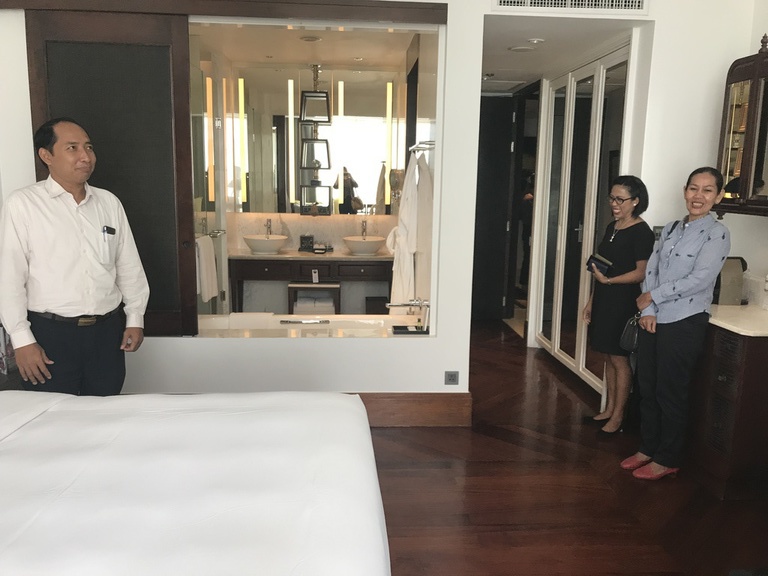
Tourist hotel near Angkor Wat temples
Today, she is giving us a tour of a 5-star hotel in Siem Reap, the Cambodian city known for the Angkor Wat temples, making it a favoured tourist destination. The pool is hidden between high plants and guests can relax on swinging couches while watching a live dancing show – the ambiance is art deco, royal and extravagant.
So are the prices, starting at $160, while the presidential suite will cost you over $2000 a night. How is business, asks the president of the independent trade union confederation. In the high season, we hit 90-100%, the director of Sales boasts, and in the rest of the year 30-50%.
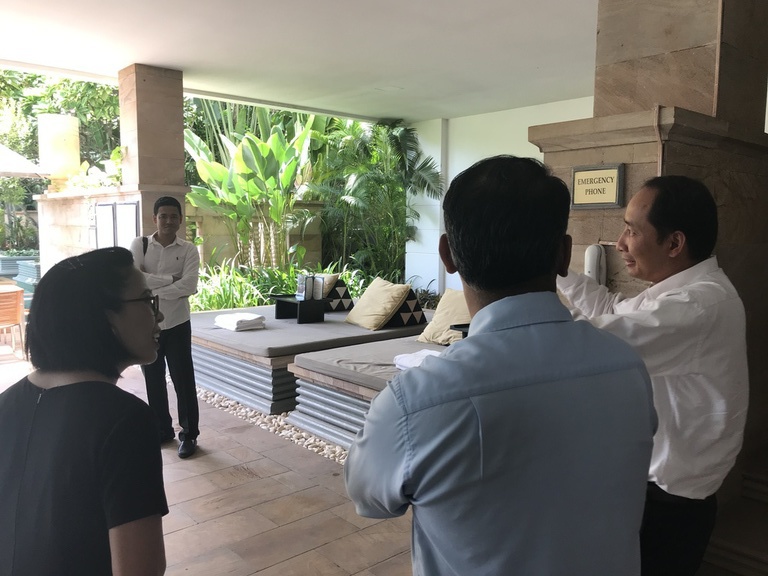
Career dreams
Her colleague, director of human resources, has just explained that the hotel provides its employees more benefits than it is obliged to by law. It has a work week of 44 hours, rather than the official maximum of 48. There is an elaborate training programme to ensure workers can pursue their career dreams.
Service charges, the mandatory tip that management often simply adds to its own revenue, is distributed among the workers and if they do not take any sick leave, they get an additional $20 at the end of the year.
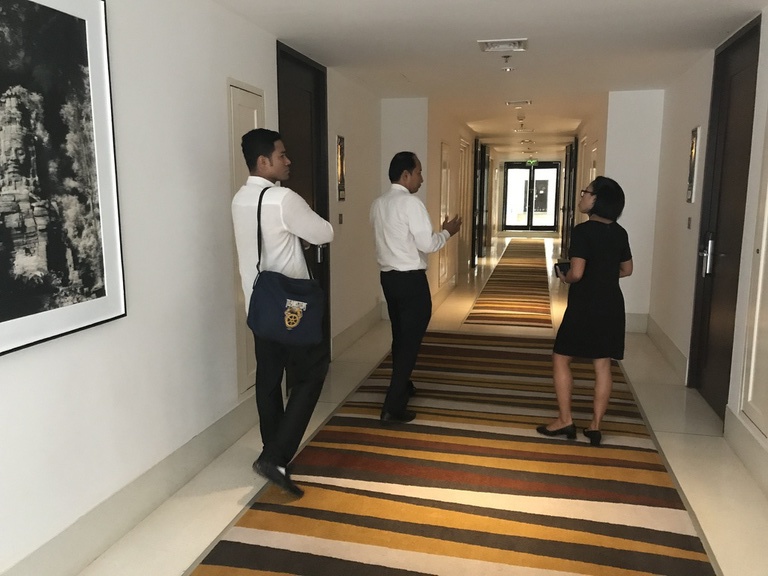
The company's interest
And while the Cambodian government has not set a minimum wage for any sector other than garment sector (where it is $182), the lowest paid workers in this high class hotel receive $140 a month, more than their colleagues in the sector, the director explains.
A third member of management, the director of Rooms adds, that it is in the company’s interest to treat their workers well:
“we care for people so that they can give us their best"
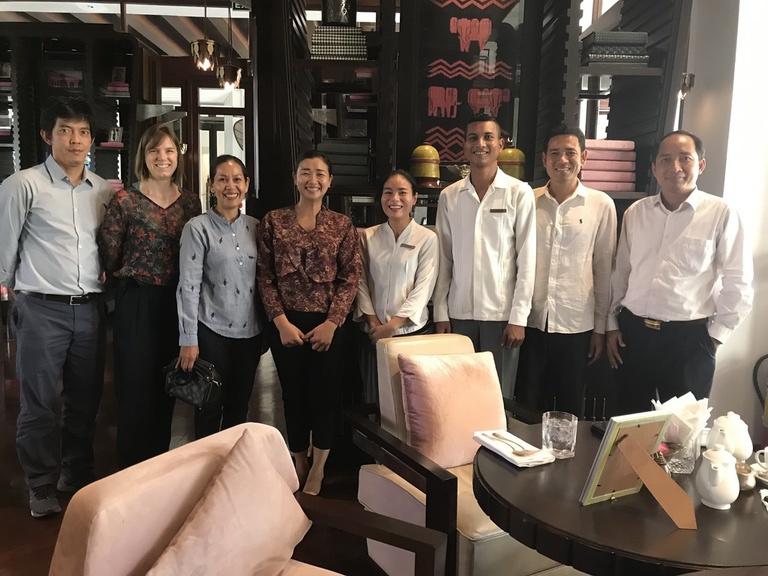
It works
And, in annual external anonymous surveys the hotel receives both a high customer as well as employee satisfaction rate. So it works, he continues.
This is why the hotel management is happy that the workers are organised: union leaders get time off to mobilise and train their members, a space to meet, and whenever they have an issue of contention, they can make an appointment with the management to discuss it. .
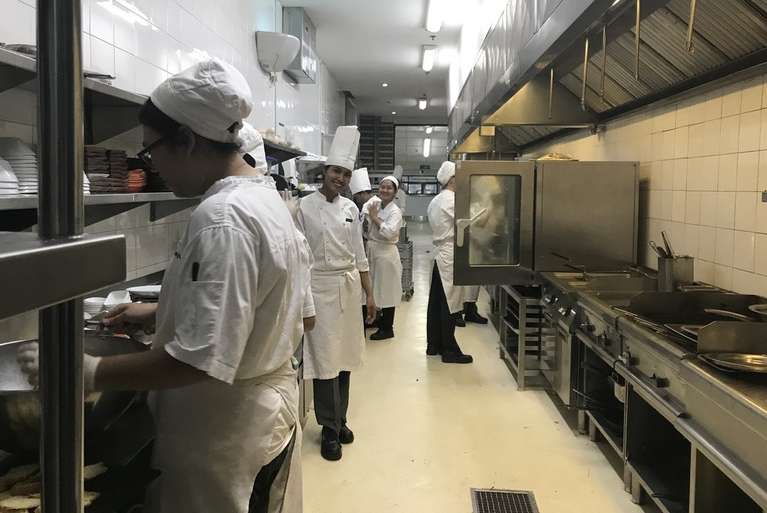
It has not always been this way
The hotel’s trade union leaders tell us when we sit down to hear their story after the tour, in 2015, worker-management relations were very strained and workers felt unsafe.
There were cases of injustice, even dismissal without due warning. Working times were too high, wages too low.

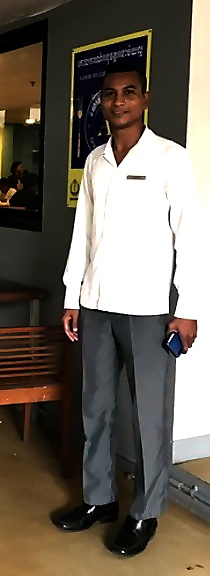
Workers came together to discuss what to do, and approached Rithy Morm, president of the Cambodian Tourism and Services Workers’ Federation (CTSWF) for support. Together, they approached the owners of the hotel’s chain group, who flew in from Thailand to assess the situation. Meanwhile, the union members were trained in labour rights, union rights and negotiation skills.
Negociating improvements step by step
When a number of union activists were suspended without any evidence base, the federation presented the case to the provincial department of the Ministry of Labour and Vocational Training for support.
In the end, the general manager was replaced by someone much more open to the 200 staff members’ demands, and they were able to negotiate improvements, one issue at a time.
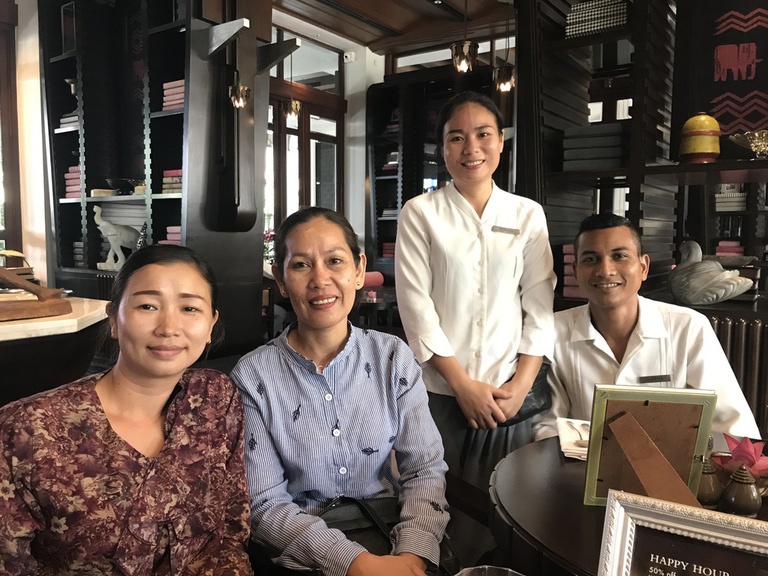
An exceptional success story
Unfortunately, this is still an exception in the Cambodian tourism industry. Out of the over 300 hotels in Siem Reap, the CTSWF has only managed to recruit the required 30% of staff to obtain the right to negotiate, in 4, all Western owned, hotels. The large majority of Chinese, Korean, Thai and Cambodian owners actively obstruct unionisation.
Besides spending 2-3 evenings a week organising her own workers, the hotel union leader also puts time into convincing employees of another branch of the hotel to organise themselves, but it is an uphill struggle.
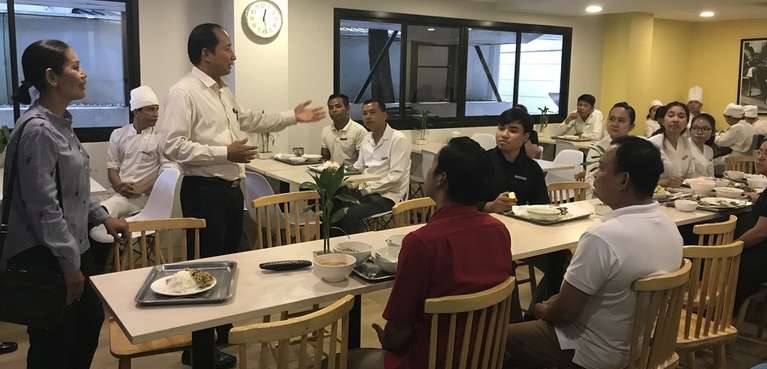
Not even a single night
And although I nodded politely during the PR tour, I realised well the workers cannot pay even a single night in this hotel with their monthly salary.
Lieke Ruijmschoot, Siem Reap
More blogs and news from Cambodia!